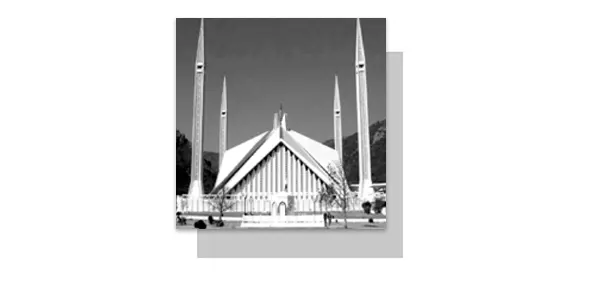A Momin (a true believer) who has ascended to the rank of Mohsin (a doer of good) is set free by his mentor after crossing the virtual river. On the other side, his journey continues as he strives to climb the metaphorical ladder aspiring to become a Wali (saint). The term Wali, derived from the Arabic root letters Waw, Lam and Ye, appears in the Quran over 200 times—124 times as a noun and 112 as a verb. Scholars have identified approximately 27 meanings of the term, though it is commonly translated as “friend.” For instance, the Quran states:
“O you, who have believed, do not take the Jews and the Christians as friends.” (5:51). This translation, taken as a Divine Command, has inadvertently fostered social divides between Muslims and followers of other Abrahamic faiths. However, the word “friend,” defined in dictionary as “a person with whom one has a bond of mutual affection, typically exclusive of sexual or family relations,” fails to capture the full depth of the term. The actual Arabic word for “friend” is Siddique.
Imam Raghib Isfahani provides a profound explanation of Wali, describing it as “the state of being situated beside something else, with no separation between them.” This definition transcends the physical proximity implied in friendship. While friends, no matter how close, remain distinct and separated by physical space, the relationship denoted by Wali suggests an inseparable metaphysical or spiritual connection, where two entities metaphorically merge into one. An Iranian scholar critiques the mistranslation of Wali as “friend,” emphasizing its spiritual rather than physical connotations. This metaphysical closeness conveys a thoughtful connection, one that goes beyond the ordinary dynamics of human relationships.
As we found earlier the journey of the soul unfolds in stages. In the first stage, the seeker uses intellect and free will to reform his soul, transforming it from malicious and restless to satisfied and contented. This self-centred stage focuses on personal growth, where God subtly alerts the seeker to the consequences of his deeds, allowing his mind to use his free will to operate.
In the second stage, the seeker requires the guidance of a mentor to navigate the challenges of spiritual growth, crossing the metaphorical river and strengthening his Iman (faith) in his heart. In this stage, the guide takes the responsibility and transforms him from a good Muslim to Momin, then to Mutaqi (God-conscious) and finally to Mohsin.
Upon reaching the metaphorical ladder, the Mohsin awaits divine command (Amr-e-Elahi) to ascend to the rank of Wali. This transformation occurs through enlightenment, granting the seeker divine eligibility to climb higher. During this phase, the Quran becomes his guide, revealing profound realities that had previously been inconceivable. He keeps on climbing the ladder as Wali. During this ascent, he attains intuitional or “logic-less” knowledge, providing insights into the metaphysical world and its divine workings. The Quran declares: “Allah is the Wali of those who believe. He brings them out from darkness into the light.” (2:257)
Each step elevates him in Wilayah (sainthood) through divine processes such as intuition, inspiration and revelation. As an enlightened Wali, he masters intuitive knowledge, becoming aware of the cosmos and its dimensions through divine will, coherent feelings, lucid dreams and unprecedented visions. His spiritual vibrations harmonize him with the nature, fostering a deeper communion. Occasionally, he enters a state of Fana (self-annihilation) or absorption, transcending time and space. In this state, he experiences extraordinary phenomena and may even appear in multiple locations simultaneously through a faculty known as Tayy al-Makaan.
As a knower of intuitional knowledge, the Wali attains clarity on both corporeal and spiritual levels, having subdued his ego and extinguished selfish desires. Absorbed in the divine self, he transcends worldly fears and grief, as affirmed in the Quran: “Behold! Verily, the Awliya of Allah—there is no fear over them, nor shall they grieve.” (10:62)
The Quran, acting as his guide, unveils inherent truths and divine messages embedded within its verses as stated: “That is the guidance of Allah by which He guides whom He wills.” (39:23) He discovers realities that had never entered his mind before the elevation of his spiritual mindset and his deeper understanding of the holy book. Step by step, the Wali ascends the ladder, reaching its peak to unlock the virtual door that bridges the realms of Farsh (the earthly realm) and Arsh,(the Divine realm) drawing closer to the ultimate union with the Divine. These three stages of the soul’s journey—transforming from self-reform to divine union—are collectively termed Marateb-e-Insani (Human Ranks) in Sufi terminology. —(Continued)
—The writer is contributing columnist.
(turi555@hotmail.com)










